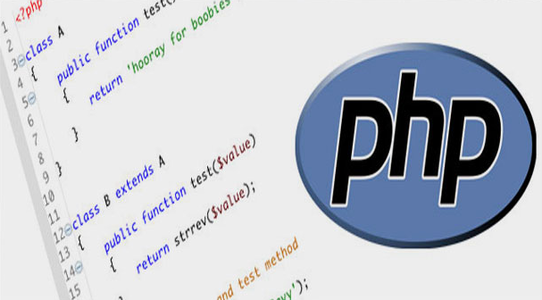Home >Backend Development >PHP Tutorial >10 recommended articles about the fgets() function
10 recommended articles about the fgets() function
- 怪我咯Original
- 2017-06-13 10:45:001337browse
The following text: This article mainly introduces the summary of functions related to PHP file read and write operations. This article summarizes the functions of fwrite(), fread(), fgets(), fgetc(), file(), readfile() and other functions. Introduction and usage examples 1. Writing to a file with fwrite() It is easier to save the data in the program to a file. You can use the fwrite() function to write the string content into the file. The newline character is represented by the character sequence \n in the file, indicating the end of a line in the file. Keep this in mind when you need to input or output information one line at a time. Different operating systems have different end symbols. UNIX-based systems use "\n" as the line end character, Windows-based systems use "\r\n" as the line end character, and Macintosh-based systems use "\r" as the line end character. end character. When you are writing to a text file and want to insert a new line, you need to use the line ending symbols of the corresponding operating system. The prototype of the function fwrite() is as follows: The code is as follows: int fwrite(resource h
1. 10 recommended articles about PHP read and write operations

Introduction: The following text: This article mainly introduces a summary of functions related to PHP file read and write operations. This article summarizes fwrite(), fread (), fgets(), fgetc(), file(), readfile() and other functions introduction and usage examples 1. fwrite() writes to a file It is easier to save the data in the program to a file. Use fwrite( ) function can write the string content into the file. The character sequence \n is used to represent the newline character in the file, which represents the end of a line in the file...
2. 10 recommended articles about the php readfile() function

## Introduction: The following text: This article mainly introduces a summary of functions related to PHP file read and write operations. This article summarizes functions such as fwrite(), fread(), fgets(), fgetc(), file(), readfile() Introduction and usage examples 1. Writing to a file with fwrite() It is easier to save the data in the program to a file. Using the fwrite() function, you can write the string content into the file through the character sequence \n. Indicates a newline character, indicating the end of a line in the file. When one input or input is required...
##3.10 recommended articles about the php fscanf() function
 ##Introduction: Learn how to use PHP's various file functions such as fopen, fclose, and feof. Basic file functions; learn about reading functions like fgets, fgetss, and fscanf and discover functions that handle entire files in one or two lines of code. Let's count how many ways there are to handle modern programming languages like PHP. One of the joys of it is the vast number of options available. PHP can easily live up to Perl's motto "There's more than o...
##Introduction: Learn how to use PHP's various file functions such as fopen, fclose, and feof. Basic file functions; learn about reading functions like fgets, fgetss, and fscanf and discover functions that handle entire files in one or two lines of code. Let's count how many ways there are to handle modern programming languages like PHP. One of the joys of it is the vast number of options available. PHP can easily live up to Perl's motto "There's more than o...
##4. About php file_put_contents. Recommended 10 articles on () function
# Introduction: 1. Write a file 1. Open the resource ( file) fopen($filename,$mode)2. Write the file fwrite($handle,$str)3. Close the file fclose($handle)4. Write file_put_contents($filename,$str,$mode) in one step FILE_APPEND LOCK_EX} 2. Read the file 1. Read the file fread($handle, number of bytes) 2. Read a line of fgets($hand...
5. About php file Recommended 10 articles on () function
#Introduction: The following text: This article mainly introduces PHP Summary of functions related to file read and write operations. This article summarizes the introduction and usage examples of functions such as fwrite(), fread(), fgets(), fgetc(), file(), readfile() 1. fwrite() writing File It is easier to save the data in the program to a file. You can use the fwrite() function to write the string content into the file. The newline character is represented by the character sequence \n in the file, indicating the end of a line in the file. When you need to enter or input at once... 6. 10 recommended articles about the php fgetss() function ##Introduction: Learn how to use various file functions of PHP. Review basic file functions such as fopen, fclose, and feof; learn about read functions such as fgets, fgetss, and fscanf. And found functions that process entire files in one or two lines of code. Let’s do the math. One of the joys of working with a modern programming language like PHP is the sheer number of options available. PHP can easily win Perl's motto "There's more than o... 7. 10 recommended articles about the php fgetc() function Introduction: The following text: This article mainly introduces a summary of functions related to PHP file read and write operations. Summary of this article Introduction and usage examples of functions such as fwrite(), fread(), fgets(), fgetc(), file(), readfile() 1. fwrite() writes to a file and saves the data in the program to the file It is relatively easy. You can use the fwrite() function to write the string content into the file. The character sequence \n is used to represent the newline character in the file, which indicates the end of a line in the file. 8. 10 recommended articles about the php fgets() function ##9. 10. (Advanced) Summary of functions related to PHP file read and write operations [Related Q&A recommendations]: php - SplFileObject cannot be read Are you writing at the same time? I saw an example where an rb was written to a file when it was opened. What does this mean? PHP SplFileObject's fgets() and fgetcsv() cannot return the correct row after seek(). fopen()l What is the rb inside? What does the feof() function do? 



 ## Introduction: The following text: This article mainly introduces PHP file reading and writing operations Summary of related functions. This article summarizes the introduction and usage examples of functions such as fwrite(), fread(), fgets(), fgetc(), file(), readfile() 1. fwrite() writes files to the program It is easier to save the data to a file. You can use the fwrite() function to write the string content into the file. The character sequence \n is used to represent the newline character in the file, indicating the end of a line in the file. Input...
## Introduction: The following text: This article mainly introduces PHP file reading and writing operations Summary of related functions. This article summarizes the introduction and usage examples of functions such as fwrite(), fread(), fgets(), fgetc(), file(), readfile() 1. fwrite() writes files to the program It is easier to save the data to a file. You can use the fwrite() function to write the string content into the file. The character sequence \n is used to represent the newline character in the file, indicating the end of a line in the file. Input... Introduction: This article mainly introduces a summary of functions related to PHP file read and write operations. This article summarizes fwrite(), fread(), fgets(), fgetc(), Introduction and usage examples of file(), readfile() and other functions
Introduction: This article mainly introduces a summary of functions related to PHP file read and write operations. This article summarizes fwrite(), fread(), fgets(), fgetc(), Introduction and usage examples of file(), readfile() and other functions
The above is the detailed content of 10 recommended articles about the fgets() function. For more information, please follow other related articles on the PHP Chinese website!

